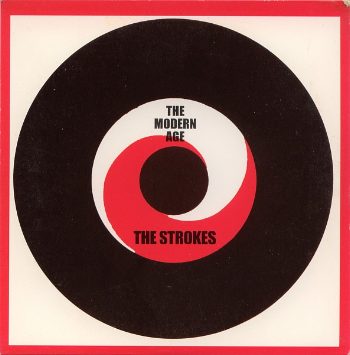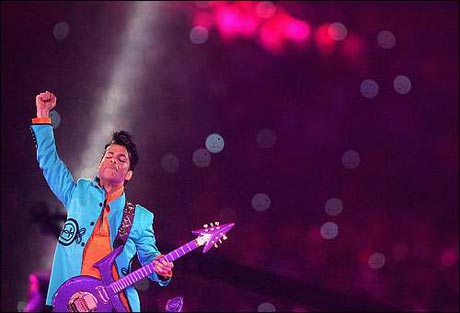In the past, I’ve taken issue with the tendency in some circles to lump Ratatat’s music in with that of the 8-bit crowd. I can understand the temptation, what with the band’s programmed, electronic beats, screaming guitars and ample keyboarding. But while their tones may sometimes sound similar to those produced by the Nintendo Entertainment System, their origins are much more organic.
So it surprised me to see that Ratatat appears to be overtly embracing the 8-bit sound while simultaneously diversifiying its non-electronic sound on its latest record, the straight-forwardly titled LP3. This record is a virtual homage to the keyboard. Indeed, the album cover features three of them. The effect is that just about any sound that can be produced by playing the keys finds its way onto this record somewhere. Indeed, one of the lead tracks, Mirando, mixes the bright and clean upper register of a grand piano with the laser beam-like sounds of an 8-bit system near its crescendo.
Don’t fret though, the duo haven’t thrown their guitars away. In fact, Ratatat seems to be well on their way to finding world peace and ultimate truth, the wailing guitar, Wyld Stallyns way. But even there, the stringed instruments shows some surprising variety. Again, the cacophonous Mirando mixes Ratatat’s thrashing riffs and slide guitars with the interjection of a banjo.
Other standout tracks include the disc’s opener, Shiller, which spends most of its time as a contemplative, baroque-style dirge before exploding into a high-flying spaced-out waltz. From there, LP3 hits overdrive with Falcon Jab further demonstrating the band’s new-found commitment to diversity. The guitars talk Peter Frampton style, the percussion is accented by shakers, and the keys of a harpsichord and baby grand trade expressions.
Mi Viejo has a distinct world-music flare, like a caravan moving up and down over the crests of sand dunes. Likewise, Mumtaz Khan shows a distinct Middle Eastern flavor, like what you might expect to find in a Turkish nightclub. Meanwhile Shempi, another highlight, is a wurlitzer-powered merry-go-round spinning through hyperspace. Gypsy Threat takes on the atmosphere of a Scooby Doo chase through an abandoned carnival.
Of the thirteen songs presented here, there’s only one that could arguably be referred to as a “typical” Ratatat song. With its mid-tempo beats and harpsichord melodies, Dura would almost feel at home as the backing track for one of Ratatat’s infamous remixes if it weren’t such a compelling track on its own.
With three albums under their belt, Ratatat has consistently shown themselves to be on the top of their game. But that game keeps expanding, with each successive album adding a new layers of complexity and textures to the band’s modus operandi. LP3 shows that whatever sights they set for themselves, they’ll reach them with gusto.
::
Note, the Amazon MP3 store offers a exclusive bonus track: Shempi [E*Rock Remix].
::
Mirando video:



